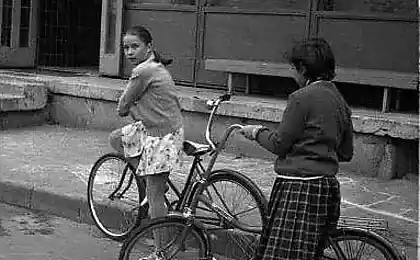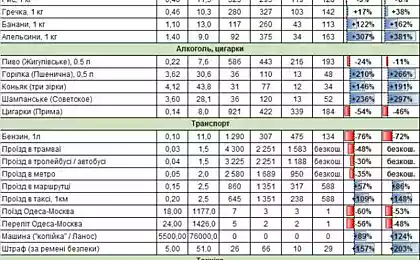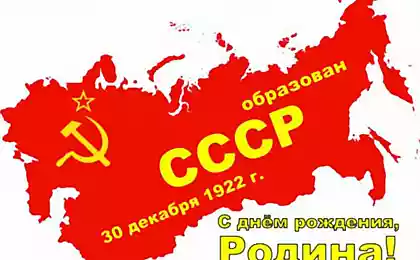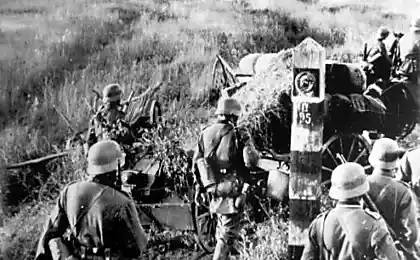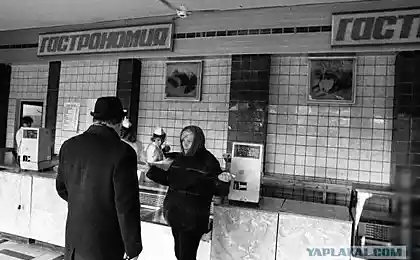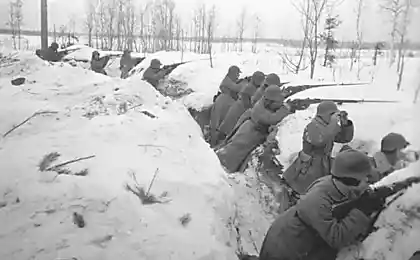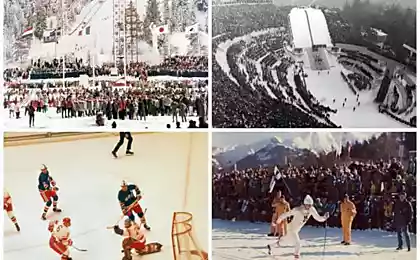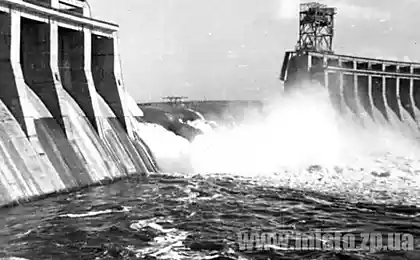191
Soviet rules that no longer work in the modern world
How quickly life changes. It would seem that 30 years ago everything was different. Today, many Soviet rule You can get a fine or even a sentence. What such rules are in question, now the editorial staff will tell in detail "Site".

The Soviet Union was a huge country with resources and minerals that no one considered. No country in Europe or America can boast of such a negligent attitude to the gifts of nature. It was only people who had shortages of food, clothing and furniture. As for coal mining, metal production and other industries, there were no problems. Not only were people used as cheap labor, given a glass of milk for harmful working conditions. No one paid attention to the environment in general.

For what Soviet rules today you can get echoes of World War II throughout the former Soviet Union, we still feel. And then, perhaps, their actions did not seem so terrible to people. In addition, these were even rules and regulations that had to be strictly implemented. For example, in the collective farms, the burning of fields in spring and autumn was quite common. And just in villages and villages, after harvesting, local mischievous people were hired, who arranged the planned tans. No one thought how much carbon dioxide gets into the atmosphere and becomes less air. There were no conservationists who talked about animals making mink in these fields.

Fire in the Soviet Union was one of the main symbols. Any Mayor, pioneer camp, trips to the collective farm. It all ended with gatherings near a campfire with a guitar. This is now, to go out into the forest to fry the barbecue, you first need to specially equip the place. It is best to buy a personal grille. And if you catch the eye of a forester, a policeman or a passer-by, you will get a decent fine. So fires in our time are not so popular. Even in a private suburban area, if the smoke blows to the neighboring area, then a patrol may come to the complaint of neighbors.

In addition to the attitude to the land, negligent attitude in the USSR was also to water resources. During the construction period in the cities of factories, production waste was drained into reservoirs. There were a lot of them and there was no shortage of clean water. We now know that the fresh water reserves on Earth are no more than 30 years. And now scientists are inventing installations for the treatment of sea water and water from sewage ditches. And in the Soviet Union on one beach it was easy to wash the carpet, wash the car and swim. None of them would have said anything.
The attitude towards animals in the Soviet Union was strange to say the least. Those individuals of wildlife that could bring rational benefits were valued. Here, for example, pigeons were in great honor among Soviet residents. Every yard had a dovecote on the roof. Someone must have been watching them. Pigeons were raised mainly for postal services. In case war breaks out again, so we can get word. We don't know how the pigeons had to know where to bring the news. They must have been specially trained. Modern inhabitants of the planet earth with a smartphone in his pocket it is difficult to imagine a situation when you need pigeons.

Another inexorable Soviet rule was sport. Exercise was at work and production. Children's camps, sports grounds and various sections. There was a lot of this in the Soviet Union. And there is nothing wrong with this, but on the contrary, one benefit. But not in every yard there was a full-fledged sports ground, and there were no special bars at the cottage. Therefore, fans of sports exercises made a bar from improvised materials. And often this material became a living tree, to which nails were nailed boards or a pipe-bar. What harm this design brought the tree itself, as well as with bonfires, no one thought.

Every year the number of animal welfare and environmental organizations grows in the world. Scientists are sounding the alarm about global climate change and environmental pollution. But humanity, as in the Soviet Union, pays little attention to the ecological catastrophe of its home — planet Earth. And let the Soviet rules on the elimination of last year’s grass no longer apply. In a global understanding of environmental processes, there is little that makes a difference. And do you think that such an attitude to the environment in the USSR mattered for today? Write in the comments your opinion on this issue.

The Soviet Union was a huge country with resources and minerals that no one considered. No country in Europe or America can boast of such a negligent attitude to the gifts of nature. It was only people who had shortages of food, clothing and furniture. As for coal mining, metal production and other industries, there were no problems. Not only were people used as cheap labor, given a glass of milk for harmful working conditions. No one paid attention to the environment in general.

For what Soviet rules today you can get echoes of World War II throughout the former Soviet Union, we still feel. And then, perhaps, their actions did not seem so terrible to people. In addition, these were even rules and regulations that had to be strictly implemented. For example, in the collective farms, the burning of fields in spring and autumn was quite common. And just in villages and villages, after harvesting, local mischievous people were hired, who arranged the planned tans. No one thought how much carbon dioxide gets into the atmosphere and becomes less air. There were no conservationists who talked about animals making mink in these fields.

Fire in the Soviet Union was one of the main symbols. Any Mayor, pioneer camp, trips to the collective farm. It all ended with gatherings near a campfire with a guitar. This is now, to go out into the forest to fry the barbecue, you first need to specially equip the place. It is best to buy a personal grille. And if you catch the eye of a forester, a policeman or a passer-by, you will get a decent fine. So fires in our time are not so popular. Even in a private suburban area, if the smoke blows to the neighboring area, then a patrol may come to the complaint of neighbors.

In addition to the attitude to the land, negligent attitude in the USSR was also to water resources. During the construction period in the cities of factories, production waste was drained into reservoirs. There were a lot of them and there was no shortage of clean water. We now know that the fresh water reserves on Earth are no more than 30 years. And now scientists are inventing installations for the treatment of sea water and water from sewage ditches. And in the Soviet Union on one beach it was easy to wash the carpet, wash the car and swim. None of them would have said anything.
The attitude towards animals in the Soviet Union was strange to say the least. Those individuals of wildlife that could bring rational benefits were valued. Here, for example, pigeons were in great honor among Soviet residents. Every yard had a dovecote on the roof. Someone must have been watching them. Pigeons were raised mainly for postal services. In case war breaks out again, so we can get word. We don't know how the pigeons had to know where to bring the news. They must have been specially trained. Modern inhabitants of the planet earth with a smartphone in his pocket it is difficult to imagine a situation when you need pigeons.

Another inexorable Soviet rule was sport. Exercise was at work and production. Children's camps, sports grounds and various sections. There was a lot of this in the Soviet Union. And there is nothing wrong with this, but on the contrary, one benefit. But not in every yard there was a full-fledged sports ground, and there were no special bars at the cottage. Therefore, fans of sports exercises made a bar from improvised materials. And often this material became a living tree, to which nails were nailed boards or a pipe-bar. What harm this design brought the tree itself, as well as with bonfires, no one thought.

Every year the number of animal welfare and environmental organizations grows in the world. Scientists are sounding the alarm about global climate change and environmental pollution. But humanity, as in the Soviet Union, pays little attention to the ecological catastrophe of its home — planet Earth. And let the Soviet rules on the elimination of last year’s grass no longer apply. In a global understanding of environmental processes, there is little that makes a difference. And do you think that such an attitude to the environment in the USSR mattered for today? Write in the comments your opinion on this issue.
The tarologist told when and under what circumstances the war will end
Where does the old-fashioned style come from and at what age do people stop being interested in outfits?

